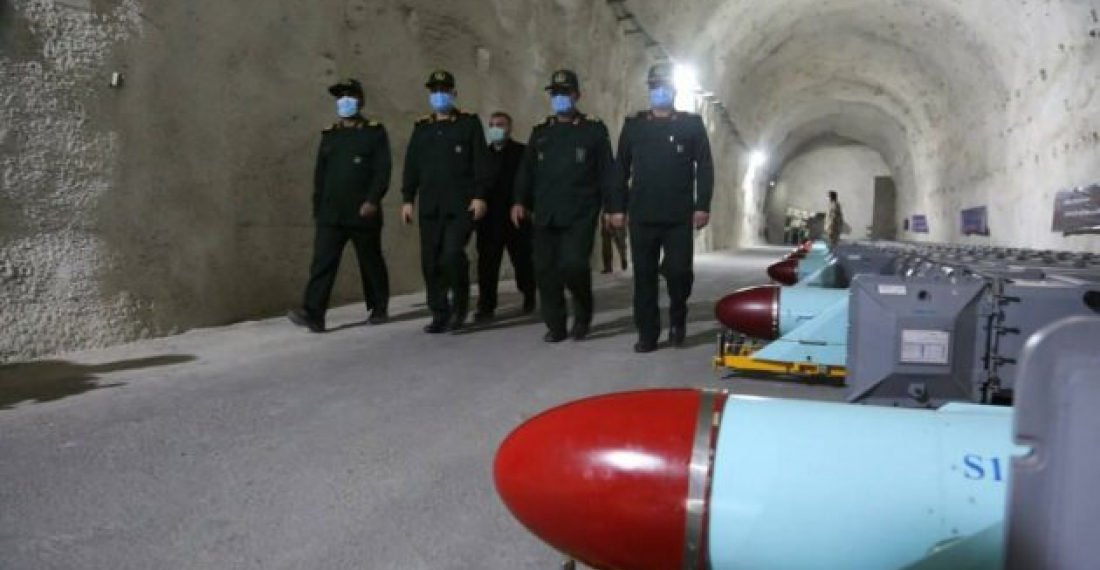A new underground missile base was unveiled on Friday in Iran's Hormozgan province, north of the Gulf and the Strait of Hormuz, by Iranian Major General Hossein Salami, commander in chief of the Islamic Revolution Guards Corps (IRGC), according to state TV.
The unveiling was also attended by Navy Commander Rear Admiral Ali Reza Tangsiri.
General Salami said that the base is one of several bases housing the IRGC Navy's strategic missiles.
“These missiles have ranges of hundreds of kilometres, enjoy pinpoint accuracy and huge destruction power, and can overcome the enemy’s electronic warfare equipment.
Salami added the IRGC Navy’s missiles are among the world’s most advanced missiles used in coast-to-sea, air-to-air, air-to-sea, and sea-to-air battles. He made it clear that the country is going to reinforce its power in order to defend its territorial integrity.
Iran seeks to attain self-sufficiency in producing essential military equipment and defence systems. Iran produces various weapon systems including drones.
Iranian authorities have invariably asserted that the country’s missile program has not been established for non-conventional purposes and is only meant as part of the country's deterrence capability.







